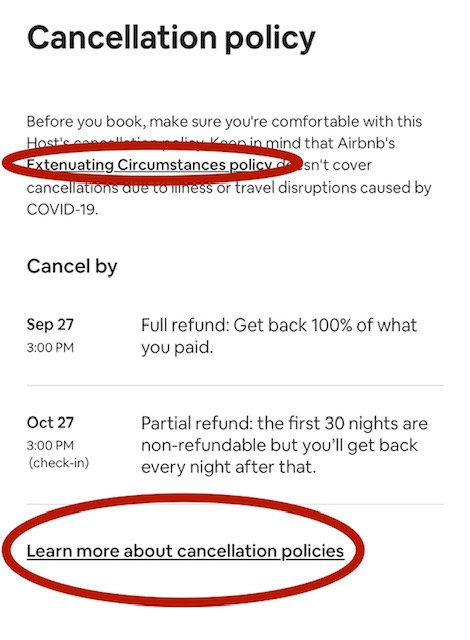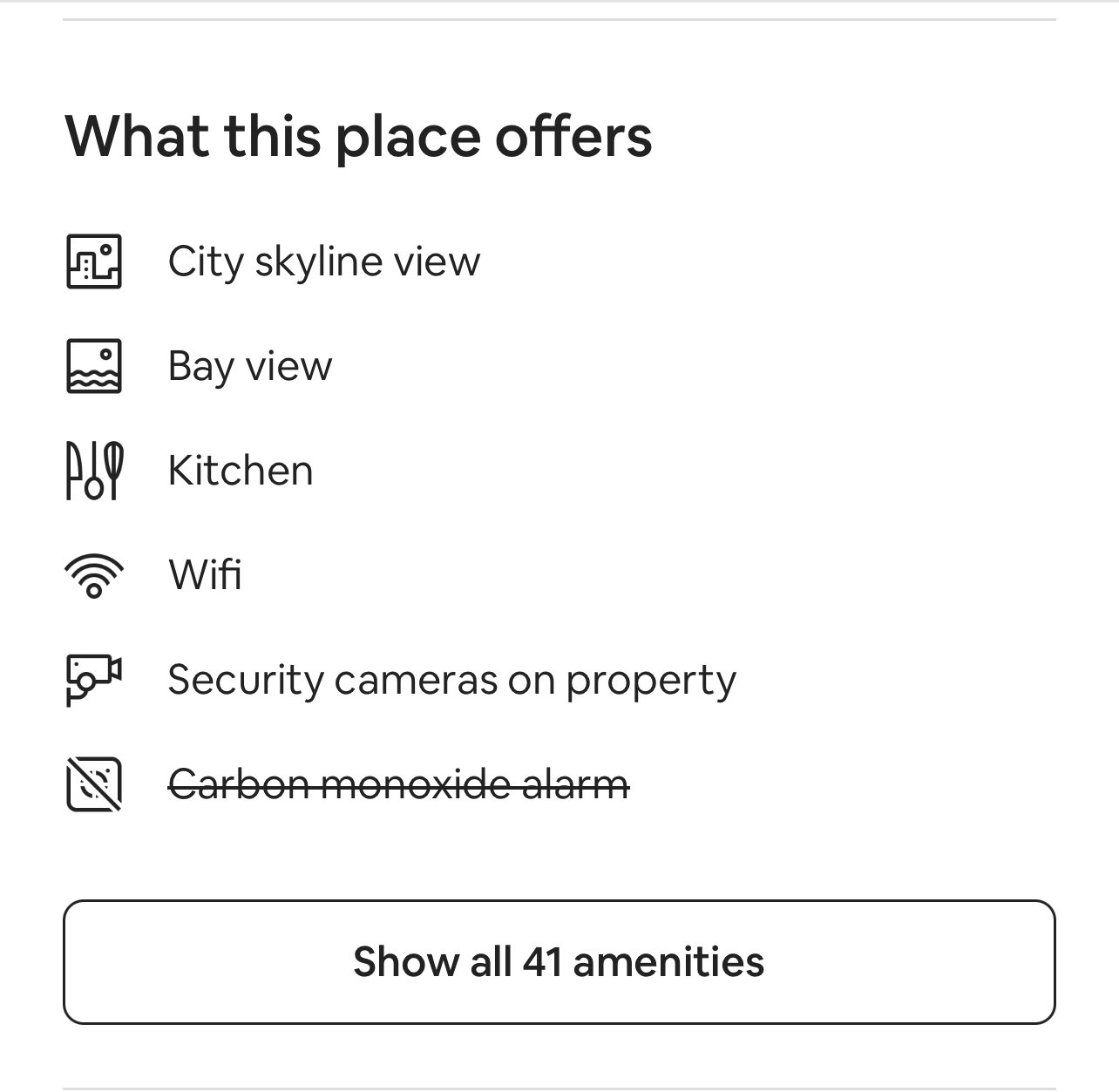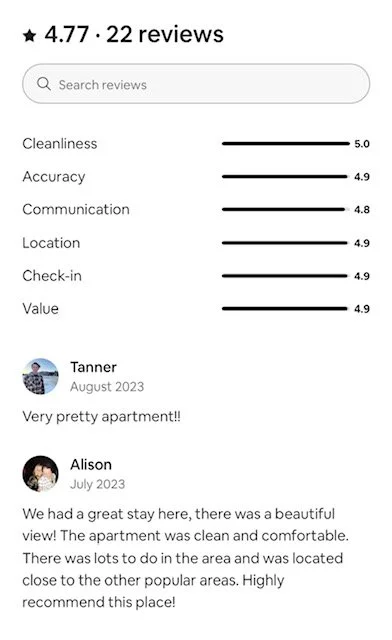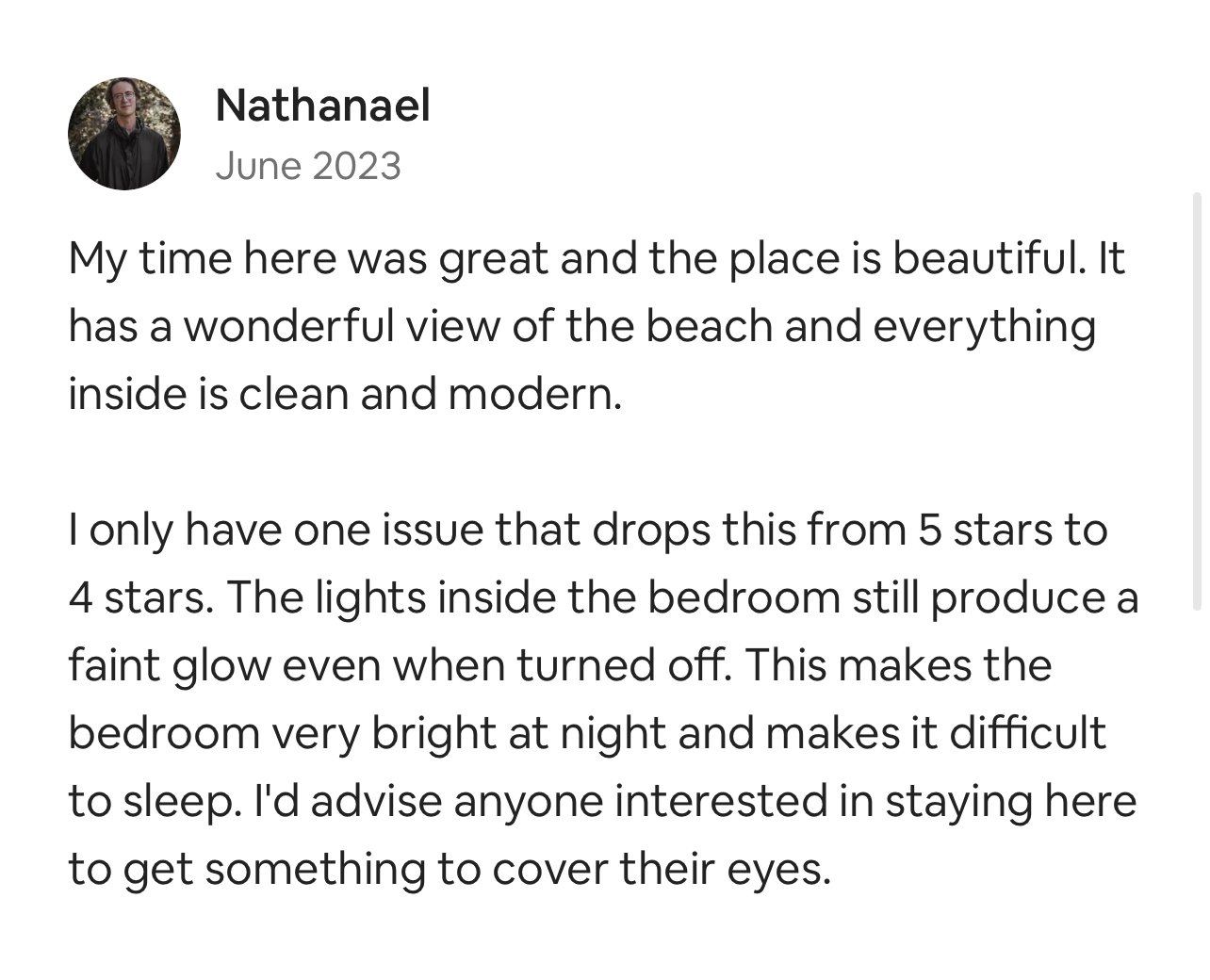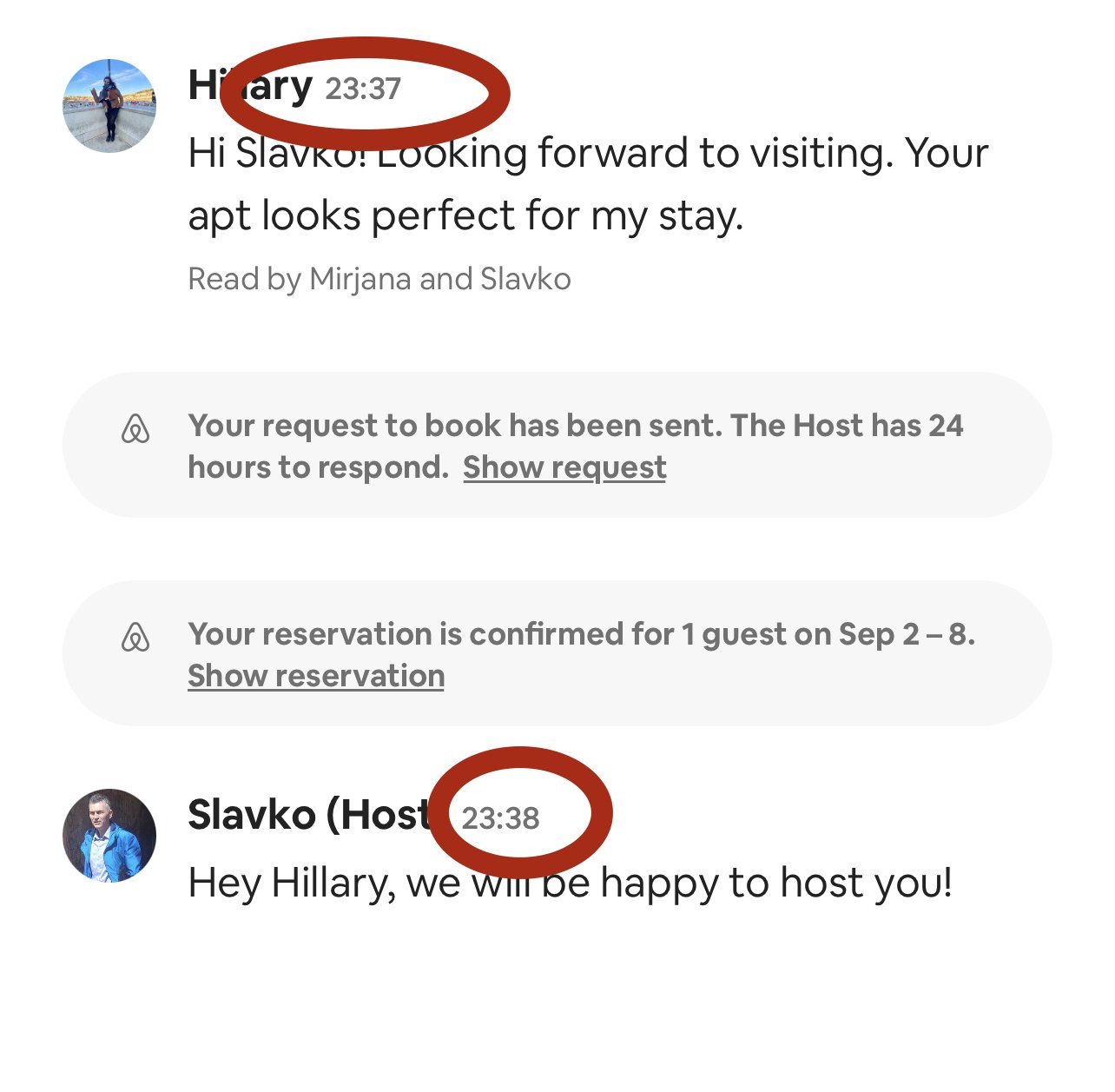Tips For The Rental Rookie
Choosing a short term rental can be overwhelming, whether for a night or months’ long stay, choosing a rental sight unseen can be daunting.
After 50+ short term rental stays (through a myriad of platforms, but primarily Airbnb and VRBO) in numerous countries, regions, and continents; I have learned a few lessons and picked up some tips and tricks that may be helpful to those delving in to short term travel rentals for the first time, or just looking for some more info for future stays.
I have overall had really great experiences with Airbnb, VRBO, local platforms, and booking directly with property owners. I had one Airbnb stay that I left due to an issues that arose, but the host and Airbnb were very responsive and a quick resolution was reached.
I have been very pleasantly surprised when places, hosts, and services surpassed expectations (like weekly cleaning services I didn’t know were included). I have also learned some lessons the hard way as far as questions to ask before booking and things to look for in listings.
A Short Term Rental is NOT a HOTEL
Say it with me again, “A short term rental, is not a hotel”.
I think this is one of the most common misconceptions with short term rentals and vacation properties and what frequently leaves travelers disappointed or not having their expectations met.
A short term or vacation rental is rental of the space and use of whatever amenities are included, but generally; nothing else.
While a good host is readily available at any given time, there is no 24 hour front desk to rely on or “corporate” to call.
There is no daily housekeeping or replenishing of necessities like toilet paper, paper towels, soap, etc. Some hosts provide an abundance of these things, but that is at their discretion and it should always be the expectation that you may be responsible for them yourself.
Of course, there are specialty or higher end listings that include personal chefs, cleaning services, bartenders, and all sorts of other luxury amenities, but these are not the standard and is particular to certain types of bookings.
Setting Expectations
The best way to look at a short term rental is “Living like a local” as opposed to “Living like home somewhere else”.
While hotels around the world have some variations, they all tend to fit similar (Western) standards and have broad stroke similarities. Short term rentals on the other hand, are all unique and usually come with the quirks and nuances of that place.
As I am writing this, my Airbnb host is under the kitchen cabinet fixing a leaking pipe. Just like in my own home (when I had one): shit happens. We are waiting for the repair man, but I am on an island, it is a holiday, and there is no 24 hour maintenance team like at the Hilton, so it may take a minute and that is okay.
“Living like a local” also means adjusting to the norms of the people and the place. If you are used to 25 minute hot showers with water pressure that removes your outer most layer of skin, an average Airbnb in Mexico, Portugal, Colombia, Thailand (or many parts of the world) may not be the best option for you.
“Norms” can vary greatly depending on the location, the culture, etc and can be drastically different on micro and macro levels. Certain neighborhoods, and even buildings, have their own culture and ways that may vary from the neighborhood or building just next door.
Setting expectations, while also keeping an open mind, having some flexibility and being adaptable will make for a much more pleasant stay.
Choosing the Right Place for You
Location, Location, Location
Usually, hotels in tourist destinations are all in the same general area. Of course some areas are better than others, and that is usually relatively easy to gauge, but short term rentals can be spread out and randomly located.
Be sure to thoroughly research what neighborhoods best fit what you are looking for and are accessible to the things that you want to see and do.
Remember that listings are created by hosts (and generally verified in reviews) so “walking distance” and “accessible” could mean very different things to them than they do to you.
I recently had an Airbnb listing that claimed “beach access”. Yes, the beach could be accessed… via a 15 minute walk. For me, that is accessible enough, but I would not call that “Beach access”. Could, and should, I have looked at the map more closely? Absolutely. Should the host have been more clear on actual distance to the beach? Absolutely.
Location can truly make or break a stay, especially a long term stay or a brief stay in which you are trying to do a lot in a little time. If it takes an hour or $50 Uber to access all the things you want to see, that may not be a good use of vacation time, or funds.
Location is also important for what type of experience you want. Sometimes I prefer a more “local” experience so I avoid tourist and expat areas; this often comes with a lower price tag, but can also come with sacrificing some “comforts”, which is part of the experience for me, but may be a turn off for others.
Location also means proximity. Is the rental on a major highway? Above a bar? Next to a construction site? Accessible to public transit? Is parking available if renting a car? Is it in a family building/neighborhood? Next to a park/greenspace/beach or in an industrial area? If it is not clear from the map or listing, be sure to reach out to the host and ask.
Type of Place
There are a myriad of options when it comes to short term and vacation rentals.
From luxury to local, tiny house to mansion, pent house to tent, there is every option available to fit every desire and every budget (though sometimes what is desired is not in our budget).
Some platforms offer a room rental. This can be in the hosts home, where the host lives and will be, or it can be in a home or apartment that has multiple rooms that are all rented to travelers who will share common spaces like the living room, kitchen, and bathroom. These settings tend to be much more budget friendly and can be a great way to meet locals or other travelers.
One complaint about short term rentals I see frequently is from travelers who stay in apartments, but are used to living in a stand alone home with no shared walls. Complaints about noise are frequent from travelers staying in apartments in cities that have certain expectations of “quiet hours” or “respect”.
While hotels generally have quiet hours and a front desk to call if neighboring rooms are having a party of being a little rowdy, a short term rental does not and often the host has no control over the neighbors activities.
Some short term rentals are within vacation communities. A perk to this is often amenities like a pool, a front desk (of sorts), a snack bar or small restaurant, security, etc. A downfall to this may be other travelers partying, coming and going at all hours, shared common space.
If an entirely private space without common areas or shared walls is more your vacation dream, there are some really amazing rental options out there are well. Privacy and space sometimes comes at a premium cost wise, and can also require extras like a car rental or taxi fares in order to access groceries, go out to eat, see local sites.
Deciding what type of space is best for you should align with the overall tone and type of experience you are looking for.
Finding the Perfect Place
I tend to use Airbnb the most, so that will be my general point of reference here, but this applies to most platforms.
🌟Establish what neighborhood/area you want to be in
I always do a Google search of “Best neighborhood to stay in ___” and then asses which area is the best fit for me
🌟Set a realistic budget
Key word here is “realistic”. Everyone has different budgets, priorities and expectations: and making those align can be tough.
What may seem like exorbitant costs is likely on par with the location, season, and demand.
Just like with hotels, during high demand seasons, even basic and lower end accommodations can get very pricey. A 3 star motel in South Beach that is $65/nt in the off season is the same 3 star motel in South Beach that is $250/nt in high season: the quality, amenities, and services do not change with the price. The same goes for short term rentals. An apartment I booked in Lisbon through Airbnb in January was $400 for just over a week, that same apartment for a month in June was over $3,000.
🌟Establish priorities/deal breakers
Many travelers choose a short term rental over a hotel for certain amenities and conveniences like a washing machine (my top priority), having more space, an equipped kitchen, more than one bathroom, a private pool, beach access, and/or whatever else will make their trip the most comfortable and convenient.
Establishing what can and cannot be compromised can help narrow or broaden a search.
🌟Establish what you are willing to compromise
If the perfect listing is in the perfect location, but is over budget - are you willing to extend the budget or willing to make compromises in the space and location to meet your budget?
If you are friends or a family traveling and looking for 3 bedrooms, but a 2 bedroom with a pull out couch comes at a significant cost savings, or puts you in the perfect location, is that something your group is willing to compromise?
As much as a washing machine is at the top of my priority list, if I find a place that is absolutely perfect in every other way, and there is laundry nearby, I am willing to make that sacrifice.
Start Your Search
Once you have established your budget, the type of place and location you are looking for, head over to your preferred booking platform and start your search.
Use the filters to narrow down options based on the above. This is especially important if staying in a budget is an absolute must: don’t try on the dress you can’t afford… it is almost a guarantee you will fall in love with it and nothing else will compare.
Create a “wish list” (Airbnb and VRBO have this features) to easily go back to your top choices. You can also share these lists with others you may be traveling with.
🔍Thoroughly read the listing.
🗺️Assess the location via the map area, don’t just go based on neighborhood name in the listing
❌Cancelation Policy: Read tis very thoroughly, as well the overall terms and conditions of the platforms you are booking though regarding cancellations. If booking with a strict or limited cancellation policy, be sure to review what travel insurance (either purchased separately, through your credit card, or offered by the platform) covers.
💵All fees and costs, including cleaning fees, taxes and fees included in booking and any additional local taxes that may be required at check in.
📃Look through all listed amenities
📃Read the house rules and expectations
💰Look for any additional fees, ie: if you are staying more than 30 days there may be utility fees, long term stays may also include mandatory cleaning on a weekly or biweekly basis that may come at a cost to the renter
🕰️Check in and check out times, as well as check in method
🪪 Security features such as cameras, security staff
🏊🏾♂️ Access to amenities - an example of this may be pool hours that are limited to 2 hours per day or need to be pre-booked.
🔍Thoroughly read reviews
🌟Don’t automatically eliminate places that don’t have 5 star reviews
Travelers have varying expectations and “standards” and this is abundantly clear in reviews. I have seen poor reviews left for things like “excessive mosquitos” (outside) in Mexico, “The hill is very steep” in Lisbon, “The host did not provide enough toilet paper for my month long stay”. While it is good to know that there are mosquitos, a hill, and that I will have to purchase my own toilet paper; these are not within a hosts control and don’t justify a poor review… at least not in my opinion.
Honest and accurate reviews often give insight as to things like the comfort of the furniture, water pressure, hot water, noise, special touches from hosts, accessibility and location highlights (or barriers), construction, and other lived experiences in the space.
Another benefit to thoroughly reading reviews is seeing the host response to negative reviews (as well as their response to positive feedback). I am much less likely to book somewhere where a host is combative or argumentative/accusatory in response to negative reviews.
🏆Look for “Superhosts”
(this term is specific to Airbnb, but other platforms have similar rankings)
Many people are more comfortable booking exclusively with Superhosts as they have earned this status via a certain number of bookings and maintaining high ranking reviews.
If you are booking a rental for the first time, this may be a more comfortable route to take, as it can take some of the guess work out of establishing if a listing is legitimate or trustworthy.
🌎A personal preference/must of mine is to only book from independent owners.
Recognizing that short term rentals have negative impacts on local communities and housing markets, I commit to only renting through independent owners and not large conglomerates that own numerous properties. This is absolutely a personal choice and preference, and I encourage you to do what you feel is best for you.
I have booked through companies on very few occasions (twice on accident) and the experience was subpar to independent hosts I have booked through.
You can assess if a listing is independently owned by opening the hosts profile, reading their bio, seeing how many properties they own, etc. If a listing is owned by a business, that will usually be the host name and the photo will be a business decal.
If you are unclear, you can always message the host and ask.
Contact the Host
A final step I always take, once I think I have found the perfect place, is to reach out to the host.
The number one reason I do this is to gauge responsiveness. Depending on local time, if a host takes more than a few hours to respond, I often think twice about booking.
Communication and responsiveness prior to booking, and before my stay, give insight as to responsiveness and communication during my stay.
A quick introduction, expressing interest in the listing, and asking a question or two is usually a great way to assess communication. This can also offer clarity if anything in the listing or reviews are not clear or raise questions.
Things I have asked about ahead of time: proximity to an event venue, access to public transportation, additional photos of a bathroom, ceiling height after a previous review stated they were very low, wifi speed. There have been instances where honest responses deterred me from a listing and I was glad I reached out for clarity ahead of time.
If you don’t have specific questions, you can always ask what they love about the neighborhood or any further details about the listing they may have to share.
A quick, thorough, and positive response on a listing I already decided is perfect is my green light to…
Book!
Feel confident in your booking and that you took all necessary steps to find the perfect place for you! Enjoy living like a local and all that a short term rental stay has to offer.





